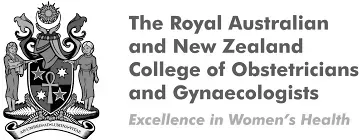Menopause
What is Menopause?
Menopause is a natural biological process that marks the end of a woman's menstrual cycle and reproductive years. It is diagnosed after a woman has gone 12 consecutive months without a menstrual period. This transition typically occurs in women between 45 and 55, although it can happen earlier or later. Menopause involves significant hormonal changes, primarily a decline in the ovaries' production of oestrogen and progesterone.
Impact of Menopause on Anatomy and Health?
Menopause brings various physical and psychological changes due to hormonal fluctuations:
Anatomical Changes
- Reproductive System: The ovaries stop releasing eggs, and menstrual periods cease. The vagina may become drier and thinner, which can lead to discomfort during intercourse.
- Breasts: There may be a loss of tissue and fat, leading to smaller, less firm breasts.
- Skin and Hair: Reduced collagen production can lead to thinner, less elastic skin, and hair may become thinner and more prone to loss.
- Bone Density: Decreased oestrogen levels can reduce bone density, increasing the risk of osteoporosis and fractures.
Health Impacts
- Hot Flashes and Night Sweats: Sudden feelings of warmth, often accompanied by sweating, can disrupt sleep.
- Mood Changes: Increased risk of mood swings, irritability, depression, and anxiety.
- Sleep Problems: Difficulty falling or staying asleep due to hot flashes or other menopausal symptoms.
- Cardiovascular Health: Lower oestrogen levels can lead to an increased risk of cardiovascular diseases, including heart attacks and strokes.
- Metabolism: Weight gain and changes in fat distribution, particularly increased abdominal fat.
- Urinary Symptoms: Increased risk of urinary incontinence and urinary tract infections due to changes in the urinary tract and pelvic floor muscles.
Cause of Menopause
Menopause is a natural process in every woman as she reaches her early forties or fifties.
The production of the hormones by ovaries that regulate the menstrual cycle, namely oestrogen and progesterone, decreases. Eventually, the ovaries stop producing eggs and menstruation stops.
Symptoms of Menopause
Menopause may lead to physical and emotional changes, such as
- Hot flushes,
- Emotional changes, including irritability or mood swings,
- Vaginal changes, including dryness, itching, or burning
- Sleep disturbances and night sweats
- Weight gain or change in weight distribution
- Headaches, general aches and pains
- Forgetfulness, declined ability to focus and concentrate
- Reduced sex drive
- Tiredness & lethargy
- Irregular menstrual periods
- Thinning hair
- Slow metabolism
- Urinary frequency
Several chronic medical conditions tend to appear after menopause. Women need to become aware of the risks to minimise them.
Types of Menopause
- Natural Menopause: Occurs naturally as a part of ageing, typically between ages 45 and 55.
- Surgical Menopause: Results from the surgical removal of the ovaries.
- Premature Menopause: Occurs before age 40, often due to genetic factors or autoimmune disease.
- Induced Menopause: Caused by medical treatments such as chemotherapy or radiation therapy.
Stages of Menopause
- Perimenopause: The transitional period before menopause, lasting an average of 4-8 years. Symptoms like irregular periods and hot flashes begin.
- Menopause: The point when a woman has not had a menstrual period for 12 consecutive months. Symptoms peak, and hormonal changes stabilise.
- Postmenopause: The years after menopause. Symptoms like hot flashes may lessen, but health risks related to lower oestrogen levels, such as osteoporosis and cardiovascular disease, increase.
Menopause Awareness
Things to be conscious of include the following:
- During and after menopause, bone strength decreases. Bones may become brittle and weak, increasing the risk of fractures. Regular weight-bearing exercises and a diet high in calcium and Vitamin D-containing foods are important to keep bones strong.
- As your oestrogen levels decline, your risk of cardiovascular disease increases. Make sure to get regular checkups with your doctor.
- Some women may experience urinary incontinence. As the tissues of your vagina and urethra lose their elasticity, you may experience urine leakage when coughing, laughing or lifting.
Premature Ovarian Insufficiency (POI)
This is commonly referred to as premature menopause. POI is diagnosed once women have stopped menstruating for 12 months before age 40, with blood tests supporting this diagnosis.
Some factors that can induce early menopause include the following:
- Cancer treatment: Chemotherapy (treatment with chemical agents) and radiotherapy (treatment by exposure to radiation) can cause menopause symptoms and a temporary or permanent stop to your menstruation.
- Failure of ovaries: Autoimmune diseases or genetic factors can cause your ovaries to produce less than normal reproductive hormones. This is known as primary ovarian insufficiency and can lead to premature menopause.
- Surgery: Surgery such as total hysterectomy and bilateral oophorectomy that involve the removal of your uterus and both ovaries will immediately stop menstruation.
Diagnosis of Menopause
Menopause is primarily diagnosed based on a woman's age, menstrual history, and symptoms. However, certain tests can help confirm the diagnosis:
- Medical History and Symptoms: A healthcare provider will review the patient’s medical history, symptoms (such as hot flashes, night sweats, and irregular periods), and age.
- Physical Examination: A physical exam may be performed to check for signs of menopausal changes in the body.
- Blood Tests: Blood tests can measure levels of hormones such as:
- Follicle-Stimulating Hormone (FSH): Elevated FSH levels can indicate menopause.
- Estradiol: Low estradiol levels, a form of oestrogen, can support the diagnosis.
- Thyroid-Stimulating Hormone (TSH): To rule out thyroid issues, which can cause similar symptoms.
- Other Tests: If necessary, additional tests may be conducted to rule out other conditions that can mimic menopause symptoms, such as thyroid disease or other hormonal disorders.
Menopause Management
While menopause is a natural process that does not require treatment, various options are available to manage symptoms and improve quality of life:
Hormone Replacement Therapy (HRT)
- Oestrogen Therapy: The most effective treatment for relieving menopausal hot flashes. Oestrogen is prescribed alone for women who have had a hysterectomy.
- Combined Oestrogen and Progesterone Therapy: For women who still have their uterus, combining oestrogen with progesterone lowers the risk of endometrial cancer.
Non-Hormonal Treatments
- Antidepressants: Certain antidepressants can help reduce hot flashes and mood swings.
- Gabapentin: Originally used to treat seizures, it can also help reduce hot flashes.
- Clonidine: A medication for high blood pressure that can alleviate hot flashes.
Lifestyle Changes
- Diet: Eating a balanced diet rich in calcium and vitamin D helps maintain bone health.
- Exercise: Regular physical activity can improve mood, strengthen bones, and maintain a healthy weight.
- Stress Reduction: Yoga, meditation, and deep-breathing exercises can help manage stress and improve overall well-being.
Alternative Therapies
- Phytoestrogens: Plant-derived estrogens found in foods like soy and flaxseed may help relieve mild menopausal symptoms.
- Herbal Supplements: Black cohosh, red clover, and evening primrose oil are popular, but their efficacy and safety are not well-established.
- Acupuncture: Some women find relief from symptoms through acupuncture.
Complications of Menopause
Some of the possible complications associated with menopause include the following:
- The risk for heart and blood vessel (cardiovascular) diseases increases with decreased oestrogen production.
- Bone density may decrease, making bones brittle and leading to osteoporosis, which can make people more prone to fractures.
- Vaginal and urethral tissues will begin to lose their elasticity, and you may experience the sudden urge to urinate or develop (urge incontinence or stress incontinence). You may also become more prone to urinary tract infections.
- The loss of moisture and elasticity in your vagina can cause discomfort during intercourse and affect your sexual desire (libido).
- As your metabolism rate slows down, you may start gaining weight.
Benefits of Menopause
Several women report no major negative menopausal side effects; some experience benefits. With the absence of periods, women may notice a reduction in hormonal headaches, no longer having to manage heavy and painful periods, no more PMS and a reduction in symptoms related to conditions such as uterine fibroids, adenomyosis and endometriosis. No longer having to worry about pregnancy can also be liberating.
It's not uncommon for postmenopausal women to report feeling empowered, partly because of the biological changes in menopause and partly because of the point in life at which menopause occurs.



Contact
Melbourne IVF
268 Manningham Rd, Templestowe Lower VIC 3107
New Patient - (03) 9006 5570
Existing Patient - 03 9473 4444
Practice Hours:
Mon - Fri 7:00 am to 4:30 pm
Sat - by prior arrangement
All Rights Reserved | Dr Yousif Alyousif
